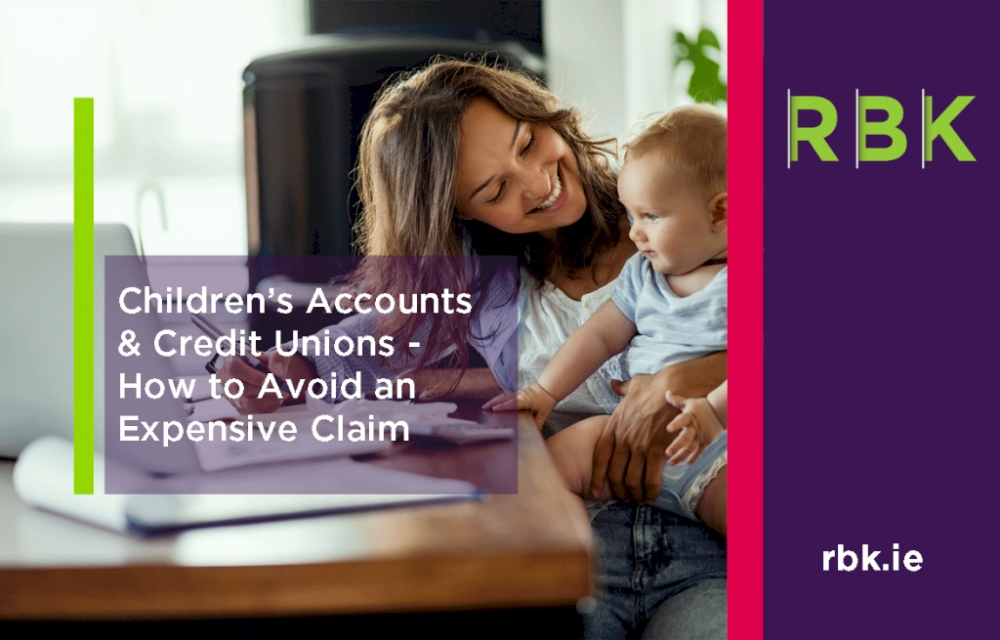How to Avoid an Expensive Claim
Earlier this month, the Financial Services Ombudsman ordered a bank to pay €66,000 in restitution because they did not have appropriate controls in place for the operation of a child’s account.
This article looks at what this means for Credit Unions and how it might affect the way in which they operate child or minor accounts. Many parents set up an account for their children with good intentions:
- Save the monthly children’s allowance to have a fund for school and college
- Set aside money to give the child when they reach a certain age
- Or a mix of both
While the intentions are well placed, parents often don’t realise that as soon as there is a name other than their own name on the account, that money ceases to be theirs. It belongs to the person whose name is on the account. So in effect, these parents are only guardians for that money until the child reaches a certain age. This age will be determined by the individual credit union and should be contained within the membership or a specific minor account policy.
So how does a Credit Union make sure that they are not left open to similar claims like the bank earlier this month? Consider the following steps:
- There should be a clearly documented set of procedures around the process for opening a child or minor account. These should include ascertaining the purpose of the account. If a parent wishes to save for College or some other big life event, it is advisable to put the money into an account which they have sole control over, i.e. do not reference the account as a minor/child account
- Review who has signing authority on the account and at what level and consider if this is appropriate. Many Credit Unions allow children who reach a certain age (typically 7) to sign for withdrawals without a parent or guardian. Credit Unions should recognise that children are vulnerable members who could be under duress to make withdrawals. This could be particularly true in the case of marital breakdown
- Child accounts are at higher risk of fraud and money laundering. Credit Unions should have appropriate mechanisms in place to monitor the level of activity on these accounts. Does the level and frequency of transactions on the account reflect the original nature and purpose of the account?
- Some Credit Unions ask parents to sign an indemnity stating the funds are for the sole benefit of the account holder. Consideration should be given to seeking legal advice in relation to the veracity of this indemnity in the event that the child takes a case like the one reported this week
- Many Credit Unions are placing limits on the amount of funds that members can deposit with them. Some parents get around this by moving funds from their own accounts to a child account. Credit Unions should ensure that their staff are alert to these types of transactions so that they can advise members of the consequences of doing this, i.e. any money transferred in this way could legally become that of the child
- There needs to be clear procedures as to how to transition the account from a child account to a full account on the attainment of the appropriate age, usually 16. This not only means obtaining the appropriate AML documentation for the new full member but also reviewing the signing authority on the account
- Finally, the ongoing staff training programme in place should ensure that there is appropriate training for staff around the procedures in place to operate child/minor accounts
How can RBK assist?
Our dedicated team can assist you to:
- Review your existing policy and procedures for the operation of child accounts and provide guidance for bringing these up to an appropriate standard
- The type and frequency of monitoring that should be undertaken in relation to these accounts
- Advise on the training plan that should be put in place so staff know how to follow the procedures.
Please do not hesitate to contact Michelle O'Donoghue , Audit & Business Advisory Director, should you require further details on any of the above.



